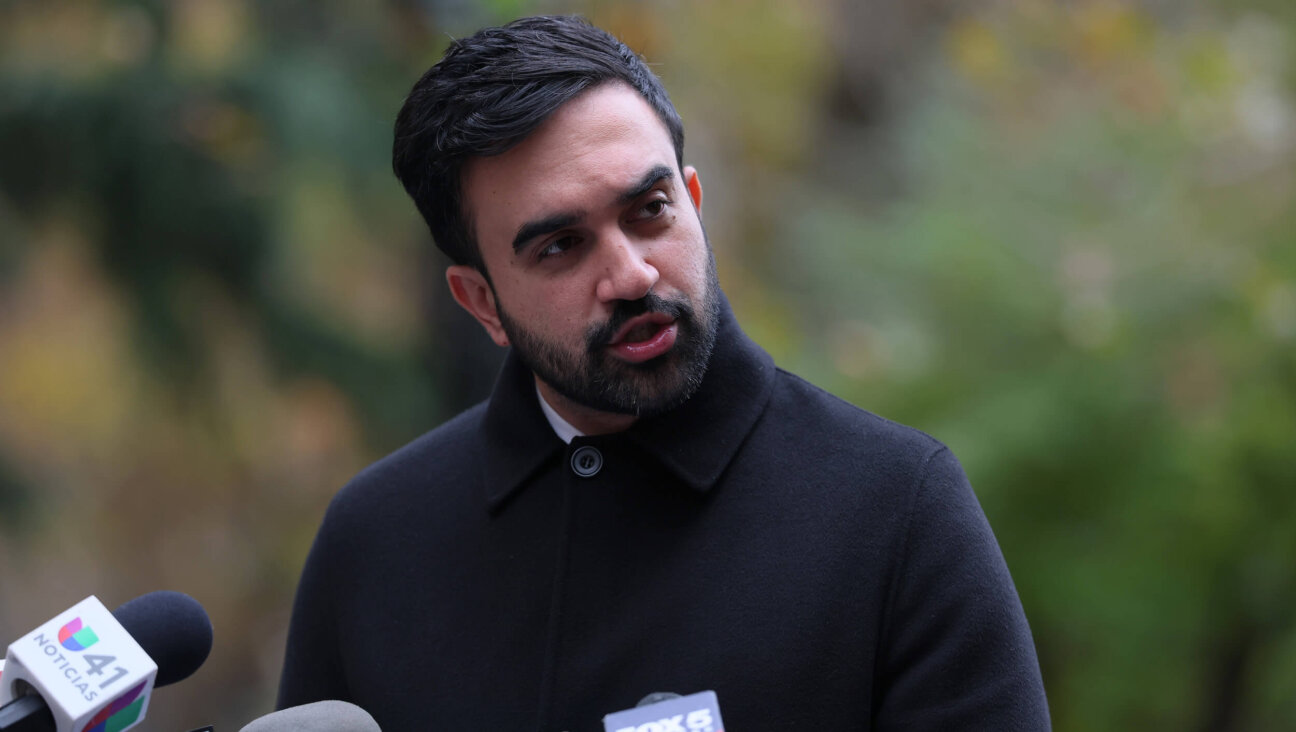Israel’s Ban Of BDS Supporters Stirs Rather Than Stifles Debate

Graphic by Angelie Zaslavsky
The Israeli Knesset recently passed a bill that bans entry to Israel of foreign nationals who call for economic, cultural or academic boycotts of either Israel or the territory it controls beyond the Green Line. It’s left me wondering: As a pro-Israel, pro-peace American Jew who is committed to the two-state solution and to opposing the occupation, am I still welcome in Israel?
I grew up actively involved in the Jewish community in Newton, Massachusetts, attending Jewish day school and participating in a Jewish youth group.
I took pride in the numerous Israel bonds I received for my bat mitzvah and, more broadly, was excited to be a part of a long tradition of supporting Israel. I was five-years-old when I first went there. I have returned seven times, including for three months in high school and twice to staff trips to Israel through the Diller Teen Fellowship, a program that brings together Diaspora and Israeli Jewish teenagers. Israel continues to be at the core of my identity: this past January, I spoke on a panel at Yad Vashem about the danger of anti-Israel activity and anti-Semitism on college campuses.
As I have grown up, I fear that Israel’s future as the democratic homeland for the Jewish people hangs in the balance. Securing its future requires taking responsibility for investing in and advocating for a vision of Israel that can be both Jewish and democratic. So when I go to Israel, I proudly support the Israeli economy within the Green Line – just as I proudly support Palestinian vendors in Ramallah and Bethlehem.
It is out of this same commitment to Israel’s future – a future that depends upon Israel’s secure borders and a lasting peace with the Palestinian people – that I also choose to avoid buying products made in settlements. My dedication to spending time in Israel proper and the West Bank, but not investing my resources in supporting the settlement movement and the entrenchment of the occupation, is an individual choice that I, and many other young Jews, am proud of. To be clear, I do not support the Global BDS Movement and neither does J Street U, on whose national board I serve.
The bill passed by the Knesset seems to have no tolerance for the views or commitments of people like me. It is an attack on core principles of free speech, democracy, and so many of the values that we as pro-Israel Americans hold up as central to the connection between our countries. It seems designed to exclude and isolate those who combine support for Israelis with support for the rights of Palestinians.
In the eyes of the Israeli government, my pro-Israel politics – insofar as they involve not supporting settlements – are now apparently held by Israel’s own Knesset to be illegitimate and anti-Israel. I have to consider the real, frightening, and deeply sad possibility that my personal choice of strong opposition to the settlement movement may mean that I am no longer welcome in my beloved Israel.
Many major, mainstream American Jewish organizations have explicitly declared settlement expansion as a threat to the two-state solution. These Jewish organizations could, hypothetically, decide to encourage investment in Israel in ways that are consistent with their support for the two-state solution and concerns about the occupation. Doing so might mean intentionally diverting funds away from the settlements, and towards causes that bring Israel closer to peace – a practice some call “reinvestment.”
Would this kind of dedication to the two-state solution and desire to invest in peace rather than in settlements lead to Israel banning an entire organization? Is choosing not to financially support settlements and to instead invest one’s resources inside Israel proper really grounds for Israeli legislators’ outrage and panic?
The Knesset may assume it has shut down the conversation about the settlement movement and the Israeli-Palestinian conflict. In fact, they’ve triggered a new wave of concern and frustration among Israel’s friends and supporters around the world. No matter the law the Knesset enacts, I will not allow a government to tell me that my personal form of love and advocacy for Israel is illegitimate or illegal. I will not abandon the country and the people I love, or stop my advocacy for Israeli democracy and the two-state solution.
Liat Deener-Chodirker is a senior at the University of Maryland and the Vice President for the Southeast Region to J Street U’s National Student Board.















